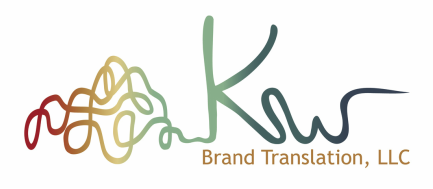FACING RACE
I am a privileged white woman.
The first part of that label isn’t an easy one to accept. As I’ve thought about it, I figure there’s at least two ways to avoid owning one’s privilege: 1) It’s all we’ve (usually) ever known, and; 2) It’s super easy to find someone wealthier and less industrious than ourselves. But I think I caught a glimpse of it. I have started to realize the process of my privilege irrespective of the product of my privilege.
Yep, I am privileged. And white. I’m not sure to what extent the white thing always goes hand in hand with the “privileged” part. It has been my privileged experienced not to have to know.
However, I do know this:
My childhood was what people might now call “free range.” Our adventures could ramble because the neighborhoods where I grew up were safe and well-meaning.
When my mind wandered outside the lines, it was cherished as charmingly creative by parents who had the time and emotional energy to indulge it.
I went to good schools where I learned developmentally appropriate things. For example, I learned to read when kids are supposed to. I learned to do math. I learned these things alongside kids whose parents were freed, like mine, to be attentive.
No one I knew was on any kind of assistance. No one I knew had ever gone to jail.
It was assumed that I would continue my appropriate education with college. My parents had gone. Everyone I knew had gone.
It was also assumed that my parents could and would help me navigate the process of getting into and paying for college.
No one questioned that I would or should move away and pursue a career that was good for me. No one needed me to the extent that my own ambitions had to be checked or delayed so I could pull for the good of the family.
When I got pulled over by the police, I was always in the wrong (I liked to speed). Even so, I often got off with a warning.
I easily got jobs. People said I looked and sounded “professional.” This came naturally to me because the people I knew looked and sounded the same way.
Now that I am my own grown-up, I can buy things that aren’t on my list, like fancy cheese or bacon smoked sea salt. I have six different types of salt in my spice cabinet right now.
My work is interesting and flexible and has taken me to enough executive airline lounges as to have an opinion about how the United lounge in LAX compares to others.
Here in America, “The land of opportunity,” people can move from one social and economic strata to another within their own lifetime. That happens much less frequently in other countries. I know this because I’ve taken my privileged little white butt all over the world.
Recently, I felt my privileged whiteness as I had not before. I learned about other Americans who see opportunity and want it too. In order to get it, they stayed in school; they did what they needed to do to graduate. But their schools were such that even after graduating, they weren’t prepared. The student did the work; the school did not. Still, these particular Americans are lucky enough to have access to a college that would support them, catch them up with remediation.
I learned that as they are catching up, they take longer to graduate because they are also working at least one other job, and not for beer money. Some of them have to take several buses to get across town to class. Some are homeless. Some pay for college tuition by donating blood.
I realized how easy it would be for privileged folk to look only at the institution’s comparative 5-year graduation rates and casually wonder if there is something wrong with the students.
I am a privileged white woman. It’s not that grief or hard work has never touched my family; life happens to the privileged just like the rest of the world. The difference, I think, is that when it does, when life happens to the privileged—when we wander, when we make mistakes, when we break minor laws, when we plan, when we want something, when we work, when we do whatever it is we do, we— privileged few—are given a wide margin to make assumptions, to consider, to react, to recover. Privilege, in my white American experience, is not only the access to opportunity; it is the wide, graciously gentle and forgiving path on the way to those opportunities.
I share this now because it's clear that we white folk need to get comfortable talking about race and privilege. And then we need to start talking about and planning how to confront the systems and structures that create inequities and exclusion. Pretending is not working anymore; for fellow Americans who aren't white and privileged, it has never worked.

